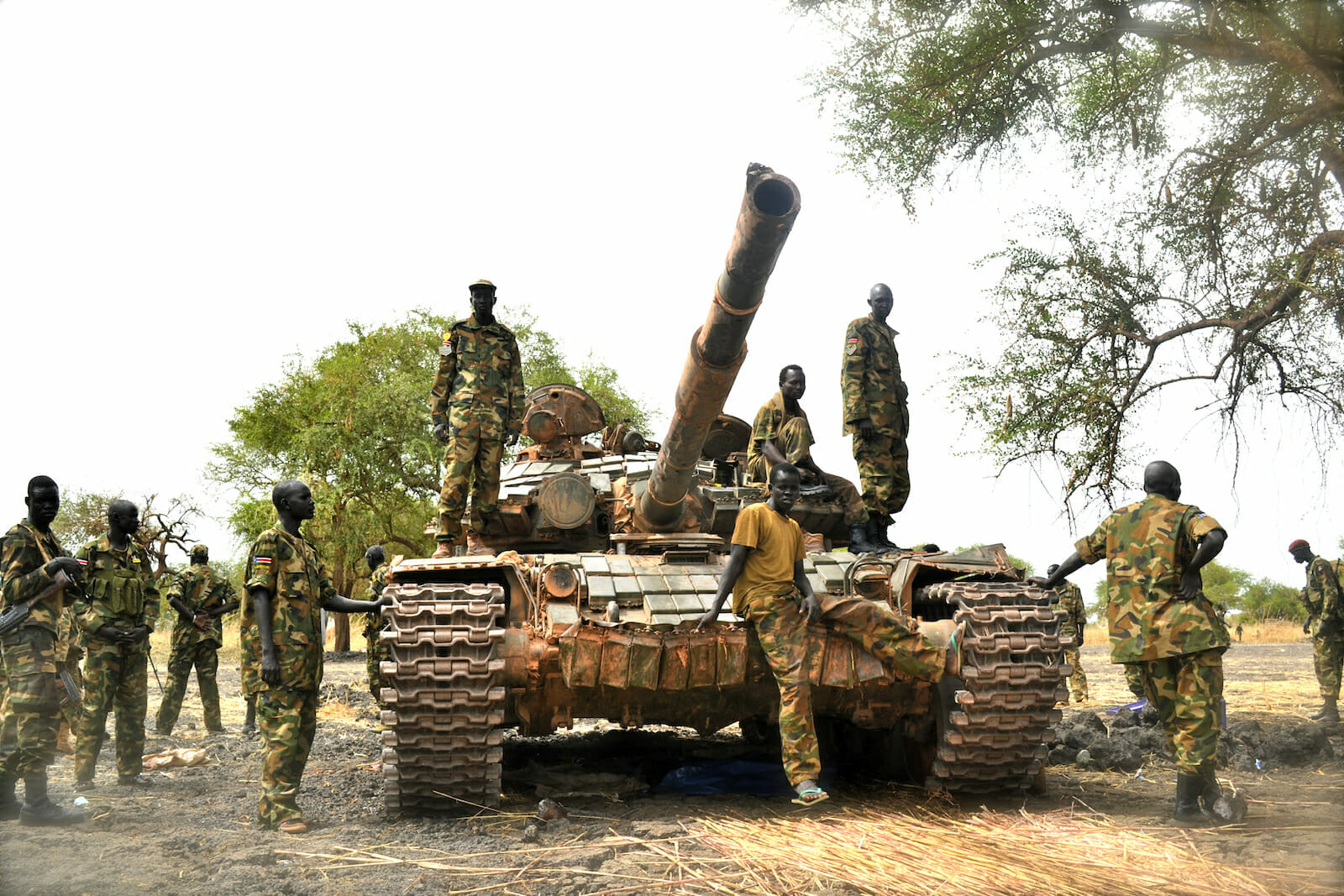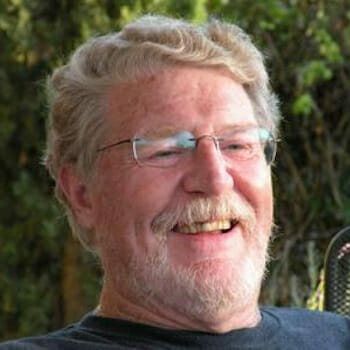
Sudan: Colonialism’s Dead Hand
Hopefully, the recent ceasefire agreement between the warring parties in South Sudan will halt that country’s downward spiral into civil war. But if it does it will have to buck the convergence of two powerful historical streams: a legacy of colonial manipulation dating back more than a hundred years, and the current policies of the U.S. vis-à-vis the African continent. South Sudan became a country in 2011 when its residents voted overwhelmingly to separate from Sudan, at the time the largest country in Africa.
But a falling out late last year between South Sudan President Salva Kiir, a member of the Dinka tribe, and Vice President Riek Machar, a member of the Nuer tribe, has plunged the country into war. Cities have been sacked, thousands killed, and almost 200,000 people turned into refugees. The birth of continent’s newest nation was largely an American endeavor, brought about by a polyglot coalition of Christian evangelicals, U.S. corporations, the Bush and Obama administrations, the Congressional Black Caucus, and human rights supporters.
But in many ways, the current crisis goes back to November 1884, when some 14 countries came together in Berlin and sliced up a continent. The players represented virtually the entire Western industrial world, although the key participants were Great Britain, France, Germany, and Portugal. As South African geographer Matt Rosenberg notes, “At the time of the conference, 80 percent of Africa remained under traditional and local control.”
When the meeting ended a year later, the colonial powers had created 50 countries “superimposed over the 1,000 indigenous cultures and regions of Africa,” thus setting the fuse for future wars and countless ethnic conflicts.
Rich in resources and people, Africa’s encounter with the slave trade and colonialism strangled emerging economies, stripped the continent of a huge part of its labor force, and pitted religions and ethnicities against one another in a continent-wide strategy of divide and conquer.
That history laid the foundations for the current spasm of violence in South Sudan that threatens to spill over into several bordering countries.
In 1886 the British divided Sudan between the largely Arab north and the mostly black south. There had long been tension between the two areas because the southern pastoral tribes—mainly the Dinka, Nuer and Shilluk peoples—had historically resisted slave traders from the North. There was intermittent warfare between the tribes over cattle and land, but they also intermarried and traded with each other. Since the British did not have the forces to occupy vast southern Sudan, they created a “Southern Policy” that pitted the tribes against one another in a classic divide and rule strategy. They also blocked economic development in order to “preserve [the] purely African way of life of the southern people.”
In fact, preserving an “African way of life” meant deliberately suppressing the development of regional governmental institutions or creating an educated population. Instead, authority was vested in “tribal leaders,” who had never wielded such power in the past. Colonial authorities deliberately banned contact with the more developed north, suppressed Islam and Arabic in the south, and fragmented the region into a bewildering tapestry of tribes and villages. The ultimate scheme was to integrate southern Sudan into British East Africa, but after World War II that was impossible.
So instead London double-crossed the southern Sudanese. After essentially creating two countries, the British reversed their “Southern Policy” in 1946 and declared the south “inextricably bound, both geographically and economically, to the Arab north as far as future development was concerned.” In practice, this meant that when Sudan became independent in 1956, the north would dominate the south. “The post-independence conflict in Sudan was largely caused by the ethnic division created by the British colonial administration between 1899 and 1956,” argues historian Savo Heleta.
The artificially of Sudan’s initial creation, coupled with the colonial policies of the British, was a built-in disaster and ignited two civil wars—from 1955 to 1972 and from 1983 to 2005—that killed some 1.5 million people. The last one led to an eventual separation of the two regions, and the 2011 referendum created South Sudan.
Once again Sudan is at war, and current U.S. policies in Africa have not helped. For the past decade and a half, Washington has seemed more concerned with cornering resources than resolving problems and has been quick to choose military solutions over diplomatic ones.
Oil plays no small role in this. Sudan has one of the largest petroleum reserves on the continent, 75 percent of which are in the south. South Sudan pumps some 245,000 barrels a day, but both Sudans profit because it is shipped through northern pipelines to northern refineries on the Red Sea, mostly ending up in China.
The U.S. is in competition with China over oil and resources—China is Africa’s number one trading partner—and by 2015 the continent will supply 25 percent of the U.S.’s energy needs. A number of U.S. firms are interested in elbowing their way into South Sudan, and Washington is always looking for ways to hem in China’s growth.
The current fighting is not just about oil, however. Christian churches have long been interested in the region, and some of the more evangelical ones see South Sudan as a bulwark against Islam. Most South Sudanese follow traditional religions, but there is a sizable Christian minority.
The Congressional Black Caucus is involved because black southerners have been much oppressed by the Arab-dominated north. And the terrible civilian toll in the two civil wars has drawn support from human rights advocates.
Starting with the Trans Sahel Initiative in 2002, the U.S. has steadily built up its military forces on the continent.
The U.S. now has troops in some 35 countries in Africa. Washington has deployed somewhere between 12,000 and 15,000 troops in Djibouti on the Horn of Africa and at least 100 Special Forces in Uganda and Niger. It is training Kenyans to fight the Shabab in Somalia, Ugandans to track the Lord’s Resistance Army in the Democratic Republic of the Congo, and it is building a drone base in Niger.
In 2006, the Bush administration created AFRICOM, the first U.S. military command organization for the continent, whose coming out party was the overthrow of Libya’s Mummer Khadafy in 2011. As the African Union predicted, Khadafy’s fall spread a tidal wave of arms into the region that fueled civil wars in Mali, Niger and elsewhere in Africa.
Indeed, U.S. military adventures in Africa have generally ended badly. Washington aided Ethiopia’s 2007 invasion of Somalia, which led to the rise of the extremist Shabab. The Shabab has not only devastated Somalia but was behind last year’s massacre at a Nairobi mall that killed 62 people and wounded more than 200.
While the U.S. has put only a modest number of troops into South Sudan, it has encouraged its regional allies to pitch in. Ethiopia is considering joining the fray, and the Ugandan army was instrumental in retaking the city of Bor from the rebels. But, as a result, Uganda is now aligned with the mostly Dinka-led government against the mainly Nuer-led insurrection. That is hardly a formula for a peaceful resolution to the current fighting, particularly since the Kiir government is demanding that everyone but its own army disarm.
In the long run, disarmament is a good idea, but right now the demand will almost certainly be resisted. While American Ambassador Susan Page says the disarmament demand is “voluntary,” those enforcing the government’s policy don’t see it that way. “If they refuse to give up their guns, we will take [them] by any means. Yes, of course by force” one government military commander told McClatchy Press.
The U.S. played a key role in the creation of South Sudan and poured billions of aid dollars into the country. But little of that aid went toward creating a governmental infrastructure or addressing ethnic unrest. Edmund Yakani, director of the Independent Community for Progress Organization in Juba, South Sudan’s capital, told the Guardian, “We traveled to New York and talked to UN ambassadors, including the US’s Susan Rice. We told them, please don’t ignore the frictions that were hidden due to the war for independence. But they thought about development and said, ‘Let’s just throw money at it.’ The voices urging governance were in the minority and neglected and not heard.”
A studied refusal to pay attention to the colonial history of the region helped ignite the current crisis. And encouraging Washington’s allies to settle political and ethnic divisions with guns and armored personnel carriers is likely to not only fail but make things worse. Instead of using military proxies like Kenya, Rwanda, and Uganda to enforce its policies on the continent, Washington should be working through the key regional group, the African Union. Had Washington done so in Libya, there would probably not have been a war in Mali and Central Africa.
What the Obama administration ought to do is shelve the guns and armed allies, and fulfill the UN’s Millennium Development Goals to reduce poverty. South Sudan would benefit from fewer guns, more economic engagement—without “free trade” strings attached—and a far greater sensitivity to history.

